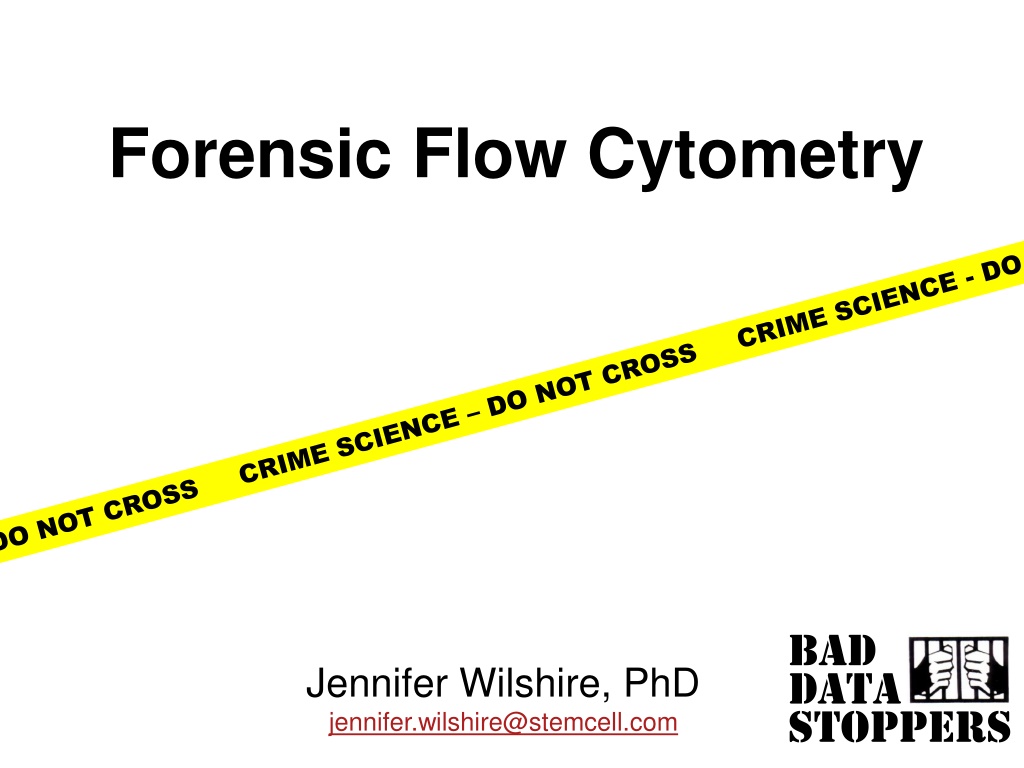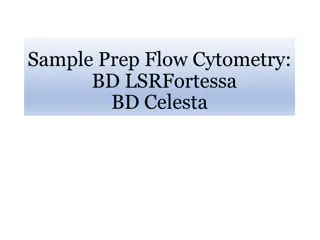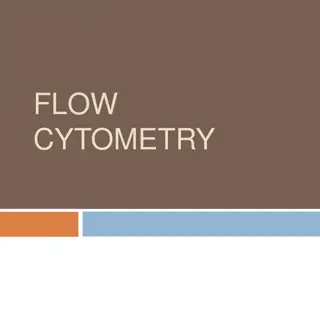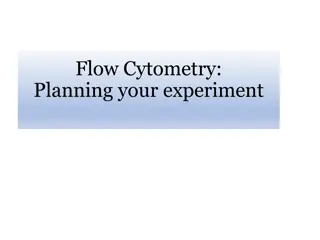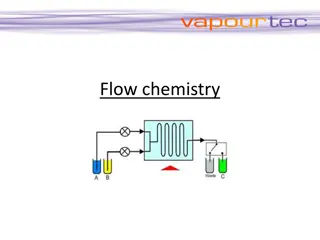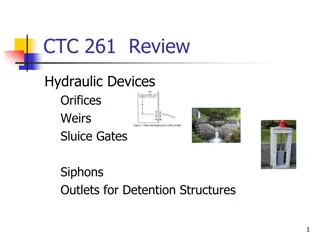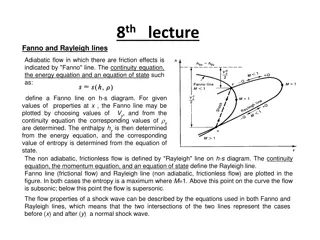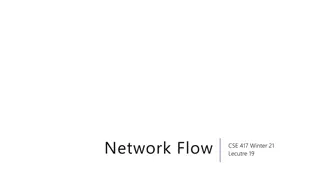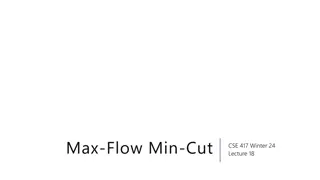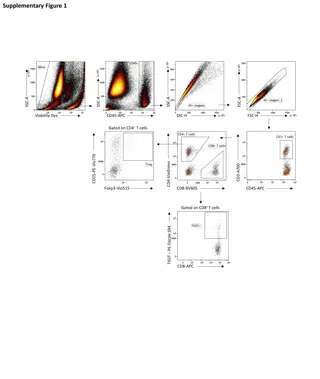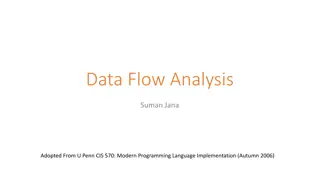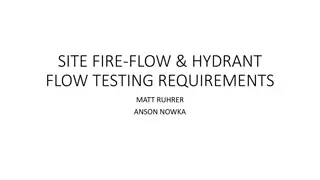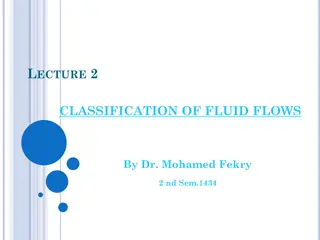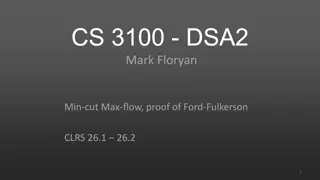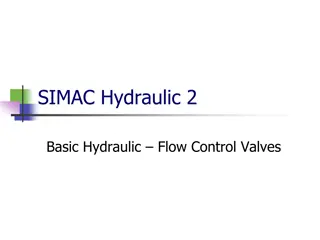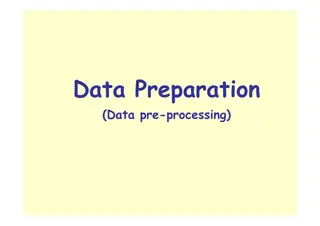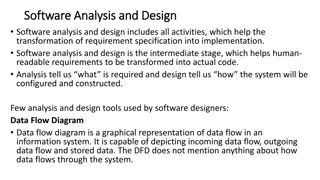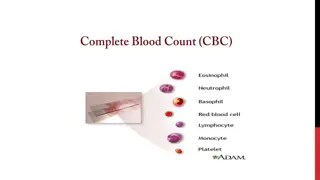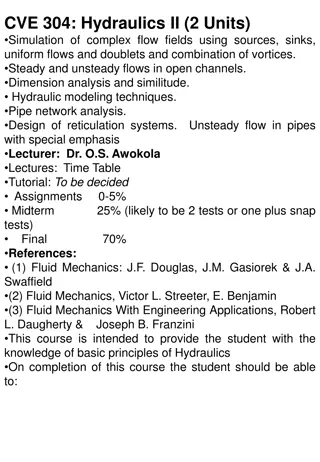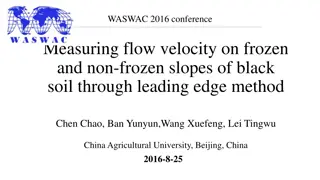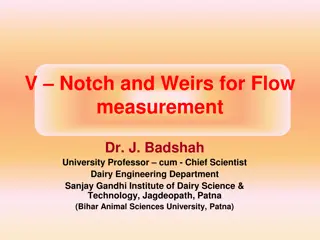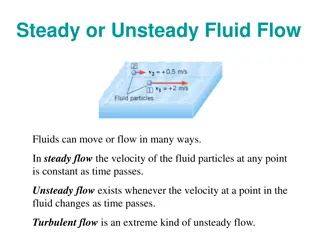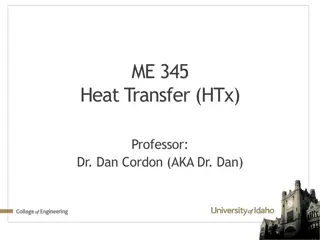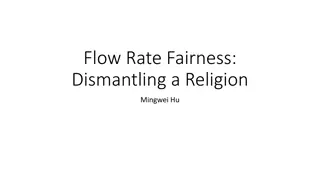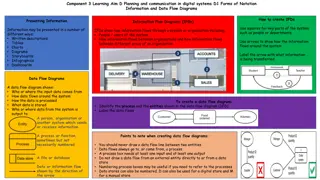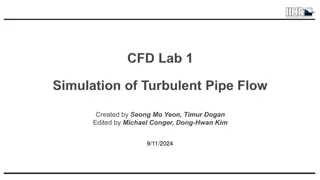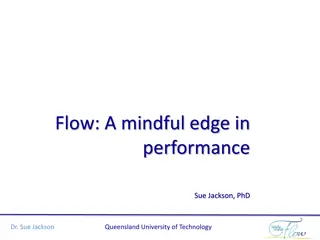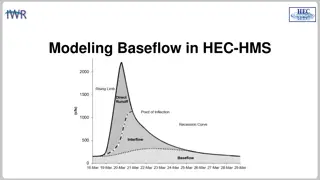Enhancing Flow Cytometry Practices for Accurate Data Analysis
Explore the realm of forensic flow cytometry with emphasis on improving data quality through proper titration and blocking techniques. Learn to identify and address common flow cytometry issues in various experimental cases to ensure reliable and reproducible results. Dive into practical rules and motivations for achieving better flow cytometry outcomes.
Download Presentation

Please find below an Image/Link to download the presentation.
The content on the website is provided AS IS for your information and personal use only. It may not be sold, licensed, or shared on other websites without obtaining consent from the author. Download presentation by click this link. If you encounter any issues during the download, it is possible that the publisher has removed the file from their server.
E N D
Presentation Transcript
Forensic Flow Cytometry BAD DATA STOPPERS Jennifer Wilshire, PhD jennifer.wilshire@stemcell.com
Overview 7 Practical Rules of Flow Cytometry Part 1: You will suggest the crime in each case Part 2: You will investigate flow crimes in an experiment
Motivation Bayer Healthcare team found only 25% of studies could be replicated Prinz et al. Nat. Rev. Drug Discov. 10, 712, 2011 Amgen could only robustly replicate 6 out of 53 landmark oncology studies from 2001-2011. Begley & Ellis Nature 483, 531 533, 2012 BAD DATA STOPPERS DO GOOD FLOW!
Case 1 Unstained CD3-PE PE+ 87% Notes: -lymphs -FcR blocked -single color experiment -CD3 expression is bi-modal (on or off) CD3 - PE Problem: Incorrect pattern and % of CD3+
Titrate to make data great! Correct PE+ % OVERSTAINED! PE+ 72% PE+ 87% CD3 - PE CD3 - PE Unstained Expression is a smear Where do you place the gate? Gate valid ONLY if antibody properly titrated! Gate on unstained CCR7 - PE CCR7 - PE CCR7 - PE
Case 1 Titrate to make data great! Antibody Proteins stick to each other Antibodies stick to membrane proteins Concentration specific Cell Titrate your reagents more is NOT merrier! Goals: Saturate positives Negatives stay unstained Notes: Keep Time, Temperature and Total volume (concentration) constant Number of cells isn t that important
Case 2 CD158i - A647 Notes: -Lysed Blood cells -CD158i is expressed on NK cells and some T cells -Monocytes are in blue CD3 - FITC Problem: Incorrect pattern and % of 158i Data courtesy of BD Biosciences
Fc Block to make data Rock! MONOS BIND ANTIBODY VIA FcR FcR blocked CD158i - A647 CD158i - A647 CD3 - FITC CD3 - FITC
Case 2 Fc Block to make data Rock! Antibody Fc Receptors bind antibodies False positives! Fab Block FcR before staining Anti-CD16/32 antibody (mouse cells) 200 ug/ml purified IgG (human cells) Commercial Fc block Fc Non-specific Specific Antigen Fc Receptor
Case 3 CD8 Notes: -Lymphocytes -CD4 and CD8 are mutually exclusive -FcR were blocked -microscope shows single cell prep CD4 Problem: CD4,CD8 double positives Data from Nature Reviews Immunology 4, 648-655
Dead Cells Kill Your Data DEAD CELLS BIND ANTIBODIES DAPI negative CD8 CD8 CD4 CD4
Case 3 Dead Cells Kill Your Data Dead cells bind antibodies indiscriminately False positives! Scatter gating does not remove ALL dead cells Exclude dead cells with a viability dye DAPI, PI, ToPro3 Fixable live/dead dyes (fixed cells)
Case 4 PRE-sort 24% GFP+ POST-sort 67% GFP+ Notes: -Cell line transfected with GFP -post-sort purity was poor -recovery was good (too good?) -bead test sort showed good purity Problem: Poor post-sort purity
DOUBLE Trouble POST-sort GFP- HITCHHIKE WITH GFP+
Case 4 DOUBLE Trouble Cells stick together Doublets Not removed by filtering Cause poor sort purity Give false double positive populations Width/Height and Area/Height pulse gating doesn t remove all doublets Pulse Width Pulse Width Pulse Width Cell preparation is key! Some adhesion molecules require Ca++/Mg++ Add EDTA DNA released from dead cells is sticky Stop killing your cells Add DNAse
Case 5 CD45RO TR-PE Notes: -Single color controls: -CD3 TR-PE -CD57 PE -controls are as bright as experimental stain CD57 PE Problem: Improper compensation Data courtesy of Mario Roederer
Compensation Controls are KEY Correct compensation TR-PE SPILLOVER DIFFERS BY VIAL Single color controls: -CD45RO TR-PE -CD57 PE Single color controls: -CD3 TR-PE -CD57 PE CD45RO TR-PE CD45RO TR-PE CD57 PE CD57 PE
Case 5 Compensation Controls are KEY RULE #1 Stain single color control with same fluorochrome Each lot of tandem dye is different! GFP, FITC, A488, CFSE are all green but have different spectra GFP stain FITC stain Emission spectra of GFP and FITC Orange Orange Green Green
Case 6 Notes: -Single color controls: Cy7PE Single IFNg Cy7PE 103 104 105 IFNg Cy7PE APC Single 103 104 105 IL4 APC IL4 APC Problem: Improper compensation Data courtesy of Mario Roederer
CompensationControls are KEY Compensated sample Cy7PE single CONTROL NOT AS BRIGHT AS SAMPLE IFNg Cy7PE IL-4 APC APC single
Case 6 Compensation Controls are KEY RULE #2 Single color controls must be as bright or brighter than sample
Case 7 PE CDY Notes: -Single color controls: -FITC CDX bound to beads -PE CDY bound to cells - Universal Negative = unstained cells -Single color controls = bright as sample FITC CDX Problem: Improper compensation
Compensation Controls are KEY AUTOFLUORESCENCE DIFFERS NEG AND POS POPULATION CELLS BEADS PE Single Control CELLS Universal Negative FITC Single Control PE CDY PE PE FITC FITC CDX FITC
Case 7 Compensation Controls are KEY RULE #3 Match autofluorescence of pos and neg pops for each color Make FSC vs SSC gate small Uniform autofluorescence Be wary of universal negative
Compensation Rules RULE #1 Same fluorochrome RULE #2 As bright or brighter RULE #3 Autofluorescence Additional rules: Treat controls same as samples Record enough events
Case 8 Unstained PRE-sort POST-sort Cy7PE: CD20 Cy7PE: CD20 Cy7PE PE PE: CD8 PE: CD8 Notes: -Compensation is correct -bead test sort showed good purity Problem: Poor post-sort purity of DP population
Gate it dont debate it! SPREADING DUE TO MEASUREMENT ERROR Fully Stained Cy7PE FMO Cy7PE: no stain Cy7PE: CD20 PE: CD8 PE: CD8
Case 8 Fluorescence Minus One Gate it don t debate it! Spreading due to measurement error Populations spread out in multicolor experiments Cannot set gates on unstained FMO = FluorescenceMinus One Leave out one reagent at a time Cy7PE FMO Cy7PE - No Stain +_ +_ + _ + _ + _ Spreading due to measurement error PE - CD8
Case 9 Cells Stain 100 Unstimulated no stain Stimulated MIP1beta stained 80 60 23% 40 Notes: -FcR blocked -single color experiment -antibody titered correctly 20 0 102 103 104 105 0 PE detector Problem: MIP1beta % is too high
Gate it dont debate it! Cells Stain Unstimulated no stain Stimulated MIP1beta stained Stimulated no stain DIFFERENT AUTOFLUORESCENCE Proper Gate 100 80 5% % of Max 60 23% 40 20 0 PE detector PE detector
Case 9 Gating Controls - Autofluorescence Gate it don t debate it! Gating control MUST match autofluorescence of sample
Case 10 Untransfected GFP transfected # Cells Notes: -single color experiment -microscope showed single cell prep -bead test sort showed good purity -recovery is good GFP Problem: Poor purity
Histograms Hide Data HISTOGRAMS MASK SEPARATION BETWEEN AUTOFLUORESCENCE AND GFP FLUORESCENCE Negative Control GFP sample # Cells # Cells GFP GFP PE PE GFP GFP
Case 10 Histograms Hide Data Dot Plots distinguish high autofluorescence and GFP fluorescence Autofluorescence is fairly constant in neighboring parameters Autofluorescence = emission from many chemicals in the cell Emission spectra
Summary Titrate to make data great! Fc Fc Block to make data Rock Dead Cells Kill Your Data DOUBLE Trouble Compensation Controls are KEY Gate it don t debate it! Histograms Hide Data
Summary Crime doesn t pay bad data = bad science Follow 7 Practical Rules to avoid flow felonies An experiment is not always salvageable rehabilitation may not be possible but can identify problems to avoid in future BAD DATA STOPPERS
Acknowledgements STEMCELL Technologies Hank Pletcher Jan Hendrikx Tim Bushnell Mario Roederer
Part 2 Use forensic flow cytometry to investigate the flow crimes
CD3 APC CD4 PE-Cy7 CD8 PE Experimental Sample What is missing? GFP ? Unstained Cells GFP - - - - Single Color GFP Cells CD3 FITC - - - - - CCR7 APC (low expressing) - - - Single Color APC Cells Single Color PE-Cy7 Cells - - CD8 PE-Cy7 - - Single Color PE Beads - - - CD8 PE - Single Color ? Cells - - - - ? Cells What type of controls are missing? Cells Cells Cells Can a universal negative control of be used when compensating? If yes should it be cells or beads?
